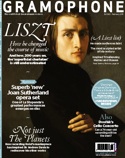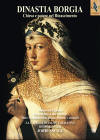Texte paru dans: / Appeared in: Code-barres/Barcode: 7619986398754 |
|
Appréciation d'ensemble / Overall evaluation :
 |
|
|
Reviewer: Julie
Anne Sadie
Presenting history via sound – not merely illuminating neglected chapters of music history – lies behind Jordi Savall’s series of “livre-CDs”. This includes evocative sound effects and recitation in original languages with something close to period pronunciation, as well as vocal and instrumental performances. Taking as his starting-point a carefully devised chronology of related events, Savall uses it as his warp, deftly weaving a rich tissue of plausible impressions, using combinations of voices and instruments as his weft.
One might expect that, with the Borgias, all roads would lead to Rome, but in this case most lead back to Catalonia, for the Borgias were actually the Borjas of Valencia and Savall himself is Catalonian. So, while two members of the Borja family did become popes (Callistus III and Alexander VI), the livre-CD is occasioned by the 500th birthday one of their heirs, Francis Borja, born in Gandia in 1510. The local city council was persuaded to add its support to the usual array of benefactors underwriting this three-disc project (illustrated in an accompanying DVD), which, with the exception of a few tracks, was recorded at Cardona Castle, near Barcelona.
As before, the livre is lavishly illustrated with musical scores and art, its texts – including five essays – printed in six languages. The recording covers four centuries, exploring the origins of the Borgia family, the Muslim, Jewish and Christian cultures that once flourished in the region, the Borgia papacies, key contemporaries, the decline of the family and its redemption through the life of Francis, who was canonised in 1671. The choice of related events and music to illustrate it is masterful. Again, Savall is working with music that is, more often than not, in shorthand: either monophonic or, if polyphonic, then lacking orchestration. To bring it to life, he has relied on his artistic ear, particular vision and thirst for knowledge, while simultaneously interesting us in a largely unfamiliar story. One striking example is “The Song of the Valencian Sybil”, taken from the Gandia Songbook.
Savall’s own presence, as both
leader and principal viol player, can always be felt. His string, wind, brass
and percussion players are superb; Andrew Lawrence-King, performing on a
sequence of different harps, provides exquisite improvisations, introductions
and accompaniments. As in earlier projects, Savall augments Hespèrion XXI with
exotic period instruments, mainly in improvisatory tracks and to add colour. His
Capella Reial de Catalunya is an incredibly adaptable ensemble, his soloists
too. His wife, soprano Montserrat Figueras, makes beautifully positioned cameo
appearances on each disc. Hats
off!
|
|
|
|
|
|
Cliquez l'un ou l'autre
bouton pour découvrir bien d'autres critiques de CD |
|




